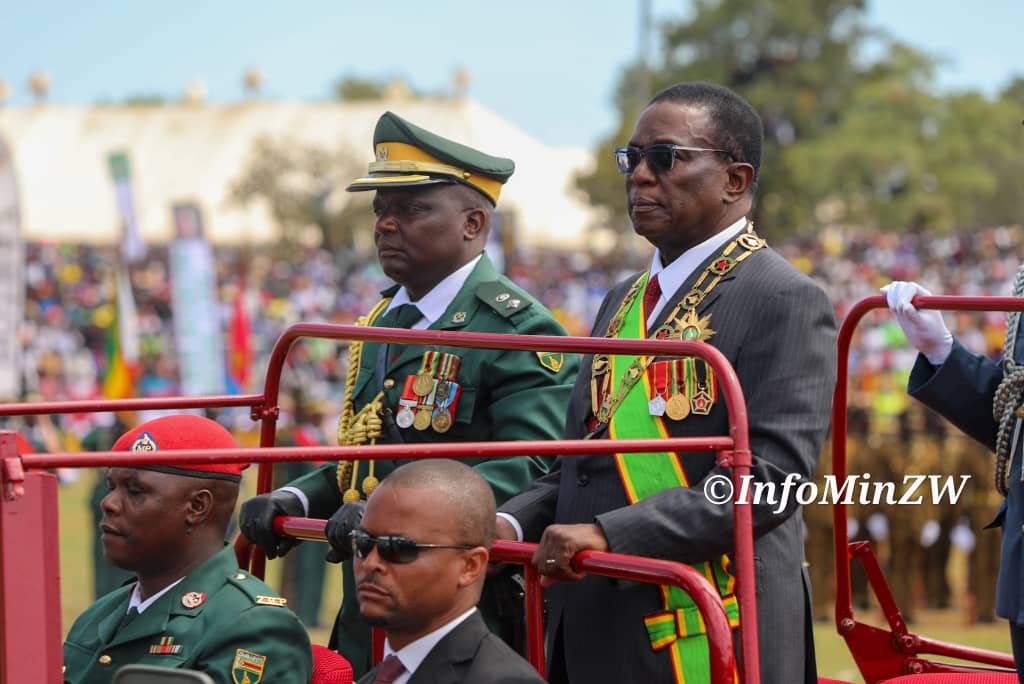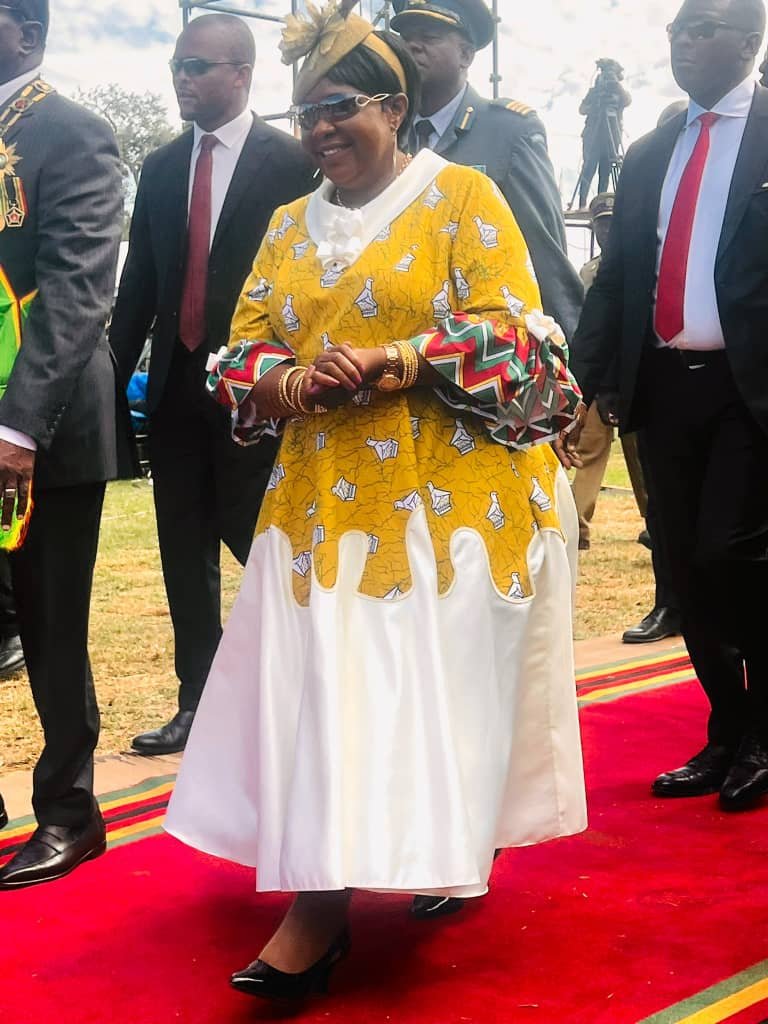- Featured
- No Comment
Zimbabwe turns 44 with little to celebrate, unless you’re Mnangagwa and his loyalists

By News24.com
In Zimbabwe, schools open for the second term on 7 May, but for pupils of Globe and Phoenix Primary School, in the Midlands town of Kwekwe, classes will be conducted under tents and trees in winter.
The makeshift classes are just under a kilometre from the school, which was decommissioned last year when some classroom blocks collapsed into underground tunnels left by illegal mining.
Kwekwe is a haven for artisanal gold miners, who even conduct mining activities in the Central Business District, creating tunnels under roads and buildings.
Last week, the Reserve Bank of Zimbabwe (RBZ) announced Zimbabwe Gold (ZiG), a currency it claims is backed by gold.
President Emmerson Mnangagwa, who addressed the crowd at this year’s independence celebrations in Murambinda, Buhera District, Manicaland, on Thursday, said the ZiG was a game changer.
“Our ZiG currency is anchored by our God-given gold and other strategic mineral resources, as well as foreign currency reserves. This development will boost our confidence and pride in our national currency,” he said.
Yet, where the gold is sourced, people are mired in poverty and violence.
“Gold miners are linked to the ruling elite. We are made to believe that gold is the backbone of our economy, but where it’s mined, the area is left in ruins,” said Michael Hweru, a Kwekwe resident.
“This is 44 years after independence, but my home town is an example of a resource-cursed people.
READ | Zimbabwe ditches Zim dollar for new gold-backed currency called ZiG
“Globe and Phoenix Primary School sat on top of rich deposits, but the fact that it was a public school facility meant nothing.”
Illegal mining sometimes results in violent clashes between mining militia gangs, known as MaShurugwi, and Al Shabaab – and, in numerous instances, the police have failed to restrain them because of their alleged links to the ruling elite.
Last year, Al Jazeera produced a four-part documentary, titled “Gold Mafia”.
This investigation showed how gold from Zimbabwe was used by those close to power to launder money.

The government reacted angrily to the documentary, accusing its producers of having a “regime change agenda.”
Little to celebrate
Forty-four years after independence from Britain, some feel there’s nothing to celebrate.
“Zimbabwe today is a far cry from the utopian society it could have easily established, using its vast mineral wealth and homegrown economic strategies.
“Instead of prosperity, Zimbabwe is known for grinding poverty and mass exodus of its citizens,” said Sibangilizwe Nkomo, the leader of opposition party ZAPU.
Zimbabwe is ranked at 149, on a list of 180 countries, in the 2023 Corruption Perceptions Index by Transparency International.
READ | Explosive Al Jazeera documentary on Zimbabwe’s illicit gold trade causing headaches for government
For Linda Masarira, the president of the Labour, Economists and African Democrats Party, the fight against corruption has been futile.
“Today, why are we failing to unite to fight against corruption, poverty and neocolonialism? We are failing because most people are greedy, selfish, egocentric and power-hungry,” she said.
Opposition politician Nelson Chamisa said: “Independence is empty without the dignity and happiness of its beneficiaries!”
Independence celebrations
At independence in 1980, Zimbabwe was nicknamed “the Jewel of Africa” by the late president of Tanzania, Julius “Mwalimu” Nyerere.
Mnangagwa was there at the time, as a cabinet minister under Robert Mugabe.
Mnangagwa, then the minister of intelligence, held the microphone for Nyerere as he made that speech at a packed Rufaro Stadium in Harare, advising Mugabe not to squander the country’s goodwill and fortune.
On Thursday, overseeing his seventh independence celebrations as head of state, he claimed that, under his rule, the country’s gross domestic product grew from US$16 billion in 2018 to US$47 billion this year.
He said Zimbabwe was marching forward as one.
“From Plumtree to Mutare, from Zambezi to Limpopo, we are building our country and improving our quality of life. Together in unity, let us continue to love our country, value this freedom, and wholeheartedly preserve this independence. Come rain, come sunshine, we continue marching forward,” he said.
